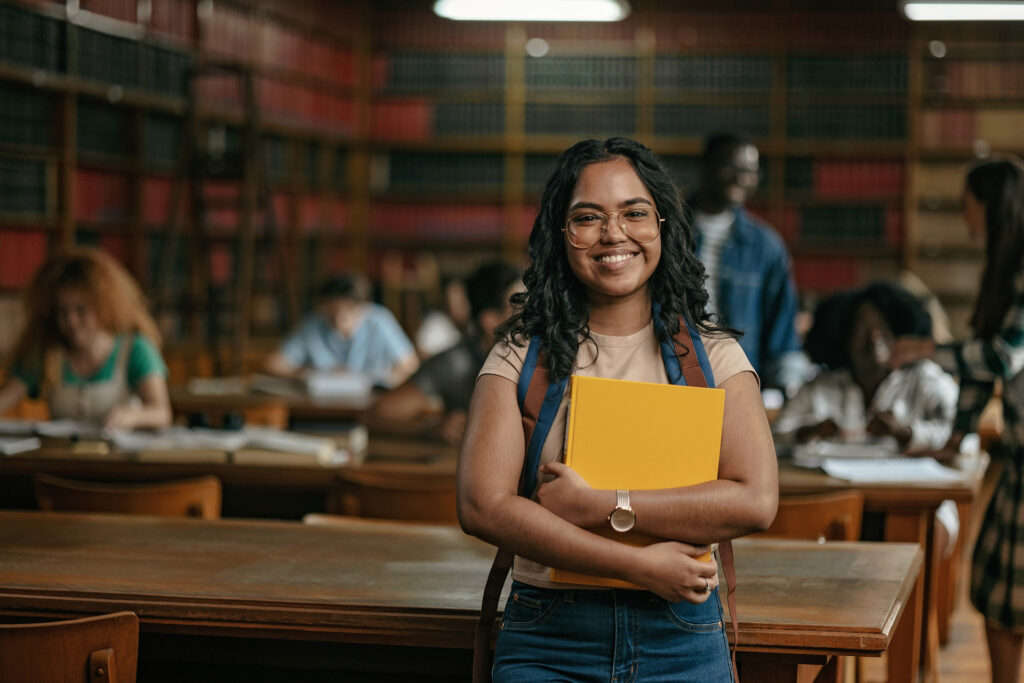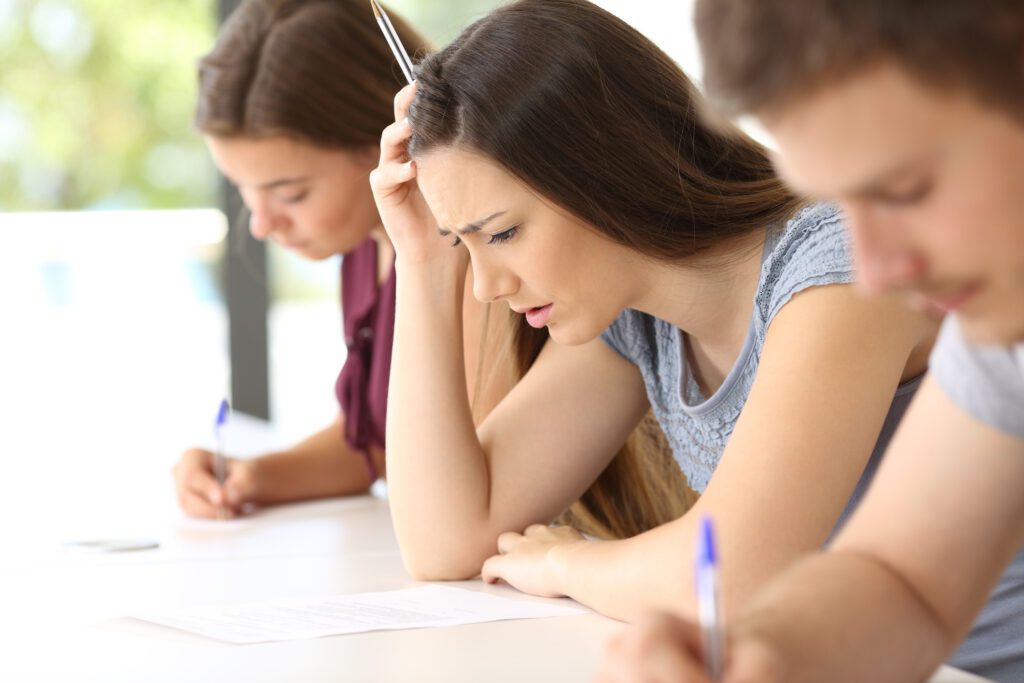One of the most challenging tasks for students is learning to study effectively. Many students and parents still believe reading their textbooks and highlighting along the way is the best way to study. However, re-reading the highlighted parts of a textbook isn’t the best strategy for studying effectively.
Re-reading the material usually gives students a false sense of readiness. Simply re-reading material does not make connections between concepts in the brain. Instead, students merely review the material to retain the most important information without considering how it links to other knowledge.
Instead of re-reading the material, here are five effective study techniques to help students retain and recall information in order to get great test grades.
5 Techniques to Study Effectively
1. The SQRCRC Strategy
SQRCRC? This acronym stands for survey, question, read, cover, recite, and check. This study technique increases students’ reading comprehension, memory, and efficiency.
- Survey: students review the chapter of their study material and make notes on the key topics, sub-headings, images, and charts.
- Question: students ask themselves questions based on the notes from the chapter, such as, what is important in this chapter? What are subtopics? Etc.
- Read: students read their notes and the textbook, a paragraph or a page at a time. They need to be looking to answer the questions they came up with in the previous step.
- Cover and Recite: students cover the material they just read and summarize what they read in their own words, ensuring they hit all major points.
- Check: Students check that what they recited is correct, read over the major points, quiz themselves, and re-read a topic they need further understanding.
2. Self-Quizzing Method
Self-quizzing is also known as retrieval or recall. Self-quizzing is an effective study method where students answer practice questions to assess their subject understanding. The self-quiz study method uses the testing effect, where memory retains information from tests better and for a longer period than information from re-reading.
Self-quizzing requires much more mental and analytic work from students. This is why many students shy away from self-quizzing and opt for re-writing. But self-quizzing is one of the best study techniques to help students to remember the material and ace a test.
To begin: create key points from study notes, then answer those questions reviewing at the end to see if the answers are correct.
3. Make Flashcards to Study Effectively
Flashcards aren’t only perfect for writing down recipes—they’re also practical for studying.
Writing down key points on flashcards helps to test and improve students’ memory. Write important topics, information, questions, or images on each flashcard. Then, write down the answer on the back of each flashcard. Spend some time going through the flashcards, asking yourself the questions out loud and giving the answer out loud as well. Then turn the card to see if the student gave the correct response.
A bonus for flashcards is that even creating the flashcards counts as studying, and students must recall and write down the information and answers. Studying effectively with flashcards is a powerful tool.
4. Spaced Learning Method
Spaced learning, also known as spaced practice or distributed practice, is a study technique that gets students to review their school over time instead of cramming before a test or exam. Cramming is basically trying to fit a lot of material into your short-term memory to be prepared for an impending exam. Cramming doesn’t work and has been shown to fail time and time again.
Spaced learning focuses on absorbing information in spaced-out stages instead of quickly fitting all the information into your memory. Learn how to use the Spaced Learning Method here.
5. Paraphrasing and Reflecting for Studying Effectively
The paraphrasing and reflecting method emphasizes reading the original text, writing down all the details in your own words, and devoting time to understanding the core idea. Students who have a few weeks until an exam can benefit significantly from paraphrasing and reflecting as a study strategy, as they may not have enough time to use the spaced learning method.
While using this study strategy, paraphrase the text in your own words and not just change a few words. Put it into your own words. Even if you don’t comprehend the fundamental idea, changing a few phrases can give the impression that you do.
To use this technique effectively, ensure the information is correct and unbiased by comparing your paraphrased notes to the source material. After each topic, create questions based on your notes and respond to them.
Need Help with Studying Effectively?
Our tutors at GradePower Learning can help your family create great study habits to ensure students are successful on tests and exams.
Contact a location near you to get started today!







